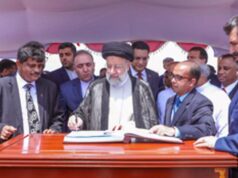Claim Over Kashmir Now Imposing Heavy Costs On Poverty Stricken Pakistan

The first anniversary of India’s revocation of Article 370 of the Indian Constitution and bifurcation of its State of Jammu & Kashmir into two Union Territories happened to be in this month.
On this occasion, keeping with their tradition of poking their nose into internal affairs of India, Pakistan released a song demonstrating the country’s solidarity with Kashmiris. Its parliamentarians walked a kilometer in the capital protesting against India’s actions. A road in the capital was renamed from Kashmir highway to the Srinagar Highway. The government also changed the country’s political map, showing Jammu and Kashmir and other regions of India as disputed territories that should be a part of Pakistan.
Indians are wondering that if Imran Bhai could show Junagadh and Kashmir as parts of Pakistan, then what stopped him claiming rest of India too.After all there are more Indian Muslims living in India than Pakistani Muslims living in Pakistan.
Pakistan still continues to consider Kashmir a core political dispute with India. Islamabad has spent decades right from 1947 in formulating a national Kashmir policy to gain some upper hand. In 1947 it did get hold of a part of Kashmir or Pakistan Occupied Kashmir, while the Maharaja of the State was still deciding whether to merge with India or become an independent Nation just like Pakistan but became an eyesore in front of the rest of the World.
Since then Pakistan has been paying a heavy price for its venture full of greed and stupidity. By 1971, instead of making Jammu and Kashmir a part of Pakistan, it lost one of Pakistan itself when Bangladesh came into existence and the name East Pakistan vanished from the map. Then because of its mad policy to induce and support terrorism inside Kashmir and encourage Separatism, Pakistan itself started becoming a radicalized State. The results are highly visible in Karachi with Sindh Liberation Front raising its stake firmly. In occupied Baluchistan, the Baluchistan Liberation Army is already fighting a guerrilla war against the occupation forces.
Even in POK, the Kashmiris have realized that instead of getting Azadi as a free country, they first got enslaved by Pakistan and now have been practically sold to the Chinese in the name of China Pakistan Economic Corridor. Rest of Pakistan is also indebted to the tune of $ 90 billion to the Chinese Sponsored CPEC. Pakistan India trade has come to a near total standstill.
Kashmir, has been a major plank in the country’s foreign policy toward India and other countries as well. Pakistan’s external relations are heavily influenced by concerns over the Kashmir dispute. Though nowadays Islamabad has to grapple more with other issues relating to the country’s internal politics than Kashmir.
Even last year after India had bifurcated its State of J& K into two Union Territories, Pakistan tried to mount a diplomatic offensive against India but it came to naught. A few criticism that India faces in regard to the Kashmir issue comes because of a certain section of the international community’s weird view on banning of internet and arrest of separatist leaders and house arrest of a few prominent political leaders.
Pakistan’s current government is being criticized within Pakistan by certain Political Parties for not doing enough to challenge India’s decision on Jammu and Kashmir. Earlier Pakistan’s response to any such situation was to dispatch more jihadist and increase terror funding to keep the region boiling. However that strategy has come to a standstill due to the growing pressure from the Financial Action Task Force (FATF). Also Indian Army and the Security Forces have been hunting down the terrorist dogs with support from the locals. The terror funding route has also been blocked to a very large extent. The Separatists leaders who had been thriving on this terror funding and also looting the State, now stand fully exposed to the public of J& K.
Interestingly, a recent statement issued by Pakistan’s Foreign Minister Shah Mahmood Qureshi over Saudi Arabia’s position on Kashmir issue at the Organization of Islamic Countries (OIC) had to be backtracked. Pakistan’s Foreign Minister in a TV interview said, “Today, I am telling the OIC to convene the meeting of the council of foreign ministers. If they cannot do it, then I will be compelled to ask the prime minister [Imran Khan] to call a meeting of Islamic countries that are ready to stand with us on the issue of Kashmir.” Those unnamed “Islamic countries” were widely taken to refer to Iran and Turkey.
The statement made Riyadh very angry and they refused to assist Islamabad at the OIC to condemn India over the issue of Kashmir. Instead within a week, Pakistan has been forced to pay back a $1 billion Saudi loan. Riyadh has also canceled a special oil credit facility for Islamabad. There are concerns that if the bilateral relationship deteriorates further, Riyadh may ask Islamabad for additional payments on the loan it offered Pakistan in 2018.
Now whether Pakistan’s Kashmir policy means anything when the country cannot even independently register its protest over an issue that forms the core of its national security policy has become the mute question. It is unclear how these rhetorical moves will give Pakistan a leg up in settling the dispute with India.
When the Pakistani foreign minister’s statement on the matter is backtracked to please countries like Saudi Arabia, it only leaves space for suspicions about Islamabad’s so-called commitment to the issue of Kashmir and Kashmiris.
The backlash to Qureshi’s statement emphasizes that while the subject of Kashmir is important for Pakistan, it is not important enough for the country to risk infuriating a major financier such as Saudi Arabia. The best Pakistan can do in this situation is to be content with whatever attention it receives from the Kingdom and not complain about it.
Since Qureshi’s statement, Pakistan’s civilian and military leaders have been scrambling to control the damage. On August 10, Saudi Arabia’s ambassador in Islamabad met the army chief in what appears to be an attempt to find out the military’s position on Qureshi’s statement.
Pakistani Chief of Army Staff (COAS) General Qamar Javed Bajwa is scheduled to visit Saudi Arabia on August 16. Bajwa’s visit is being seen as another effort from the military to indicate Pakistan’s commitment to the bilateral relationship and perhaps dump Qureshi’s remarks as a non-issue. There have been speculations that Qureshi may be forced to resign over the comment.
Understandably, Islamabad doesn’t want to annoy Riyadh further over a statement that cannot be owned or backed up with institutional or state level support. Even the federal government has come out to question the view of its own foreign minister. On August 11, Pakistan’s Federal Information Minister Shibli Faraz said in a statement that looking at Pakistan-Saudi ties with suspicion is not in Pakistan’s interest.
Islamabad needs to realize that it is not in a position to pursue its Kashmir policy internationally at any of the forums, particularly at the OIC. It is high time that Pakistan’s policymakers abandon their Kashmir narrative and concentrate on its economic development.



